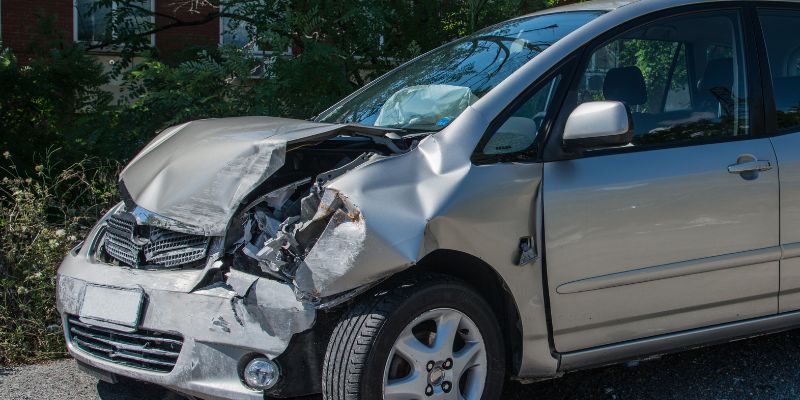|
|
Last Modified on Dec 20, 2023
Every day, most Texans get into their vehicle to commute to work, go shopping, or visit friends. We don’t often think of the terrifying dangers that can come from something we do so regularly. Our Texas car accident lawyers want to help you understand which car accidents are most common and what you can do if they happen to you.
Two hundred forty-four thousand ninety-two people in Texas were injured in motor vehicle crashes in 2022, and 4,481 people lost their lives. That is one person killed every 1 hour and 57 minutes, according to the Texas Department of Transportation. This is a tragedy that many families, insurance companies, and individuals alike must deal with.
Most Common Cause of Car Accidents
The most common cause of car accidents in Texas is speeding. When a driver is going faster than the posted speed limit, they are more likely to cause an accident. This is because excessive speeding reduces a driver’s reaction time to stop safely, impacts vehicle control, and impairs the effectiveness of road safety structures, including guardrails, median dividers, and concrete barriers, in safeguarding vehicle occupants during a collision.
Even if a driver is not going over the posted speed limit, driving too fast in hazardous road conditions or adverse weather can lead to loss of traction and potentially aquaplaning or hydroplaning, causing an accident.
Accidents caused by speeding also tend to lead to more severe injuries and even death due to the increased force of the impact. Injuries can include:
- Whiplash
- Head and brain injuries
- Spinal cord injuries
- Broken bones and fractures
- Internal injuries
- Chest injuries
- Soft tissue injuries
- Facial injuries
- Burns
- Psychological trauma
- Amputations
Other Common Causes
Besides speeding, there are many other common causes of car accidents. Typically, accidents are caused by driver errors and are unrelated to driver errors, though accidents caused by driver errors are by far more common than those that are not.
Accidents caused by driver errors include distracted or impaired driving, such as using mobile phones, texting, eating, talking to passengers, and other distractions. A driver might be under the influence of alcohol or drugs, which impairs cognitive and motor skills. Driving while fatigued may also impair focus, attention, and reaction time.
Other driver error-related accidents are reckless or aggressive driving, failure to obey traffic signals, weather conditions ignorance, inexperienced drivers, or even overloading or poorly loading a vehicle.
Some factors are beyond the control of the driver and are unrelated to driver errors, such as poor road conditions like potholes or uneven road surfaces, vehicle defects, faulty traffic signals or signs, wildlife crossing, road debris, tire blowouts, fires or explosions, and unpredictable pedestrian or cyclist behaviors.
Texas Uses an At-Fault System
Texas follows an at-fault car insurance system, also called a tort system. This means the driver who is found to be at fault for causing an accident is responsible for covering the damages resulting from the car accident, including medical expenses, property damage, and other losses.
After an accident, the fault is determined based on evidence, witness statements, police reports, and other relevant information. The at-fault driver is considered responsible for the accident and all consequences. Texas also follows a modified comparative fault rule, which means multiple parties can be found to share fault for an accident, and each party’s liability is determined by percentages.
A driver may also choose personal injury protection (PIP) coverage. PIP provides coverage for medical expenses and other related costs, no matter who is at fault.
Importance of Legal Representation After a Car Accident
Car accident cases are complex, so choosing an experienced attorney who has a thorough understanding of Texas traffic laws, insurance regulations, and legal precedents is important. By choosing Stevenson & Murray as your representation, we will meticulously assess the specifics of your recent car accident, navigate you through the intricacies of the insurance claim process, and assist in evaluating the need for additional legal action against the at-fault driver.
Having a trusted car accident lawyer by your side to advocate for you will bring you peace of mind during what is likely a very difficult experience.
FAQs
Q: What Is the Main Cause of Car Accidents in Texas?
A: The main cause of car accidents in Texas is drivers not following the speed limit. This includes driving too fast and too slow, leading to an increased potential for loss of control, distance needed to safely stop a vehicle, and reaction time.
Q: Is Texas a No-Fault Car Accident State?
A: No. Texas follows a fault-based system for handling car accidents and insurance claims. This means the party at fault, or their insurance, is responsible for covering the damages resulting from the accident. If you were injured in a car crash in Texas, you can pursue compensation from the party deemed at fault.
Q: How Is Fault Determined in a Car Accident?
A: In Texas, fault in a car accident is typically determined through a combination of evidence such as traffic violations, photographic and video evidence, witness statements, police reports, and insurance investigations. Faults can be shared and split by percentages.
Q: Is it Necessary to Report a Car Accident to the Police in Texas?
A: In Texas, you are required to report a car accident to the police immediately after if it results in injury, death, or property damage exceeding $1,000. But it is generally a good idea to report any accident to the police, regardless of the severity, because a report may be valuable when dealing with insurance and legal matters.
Contact the Car Accident Lawyers at Stevenson & Murray
Stevenson & Murray has effectively managed a multitude of cases related to car accidents. We understand the stress, anxiety, and pain that you may have after a damaging accident caused by someone else. We can assess the full extent of your damages and work to ensure you receive the compensation you deserve. If you wish to understand your rights and explore potential legal options, contact our Houston car accident attorneys online today.






